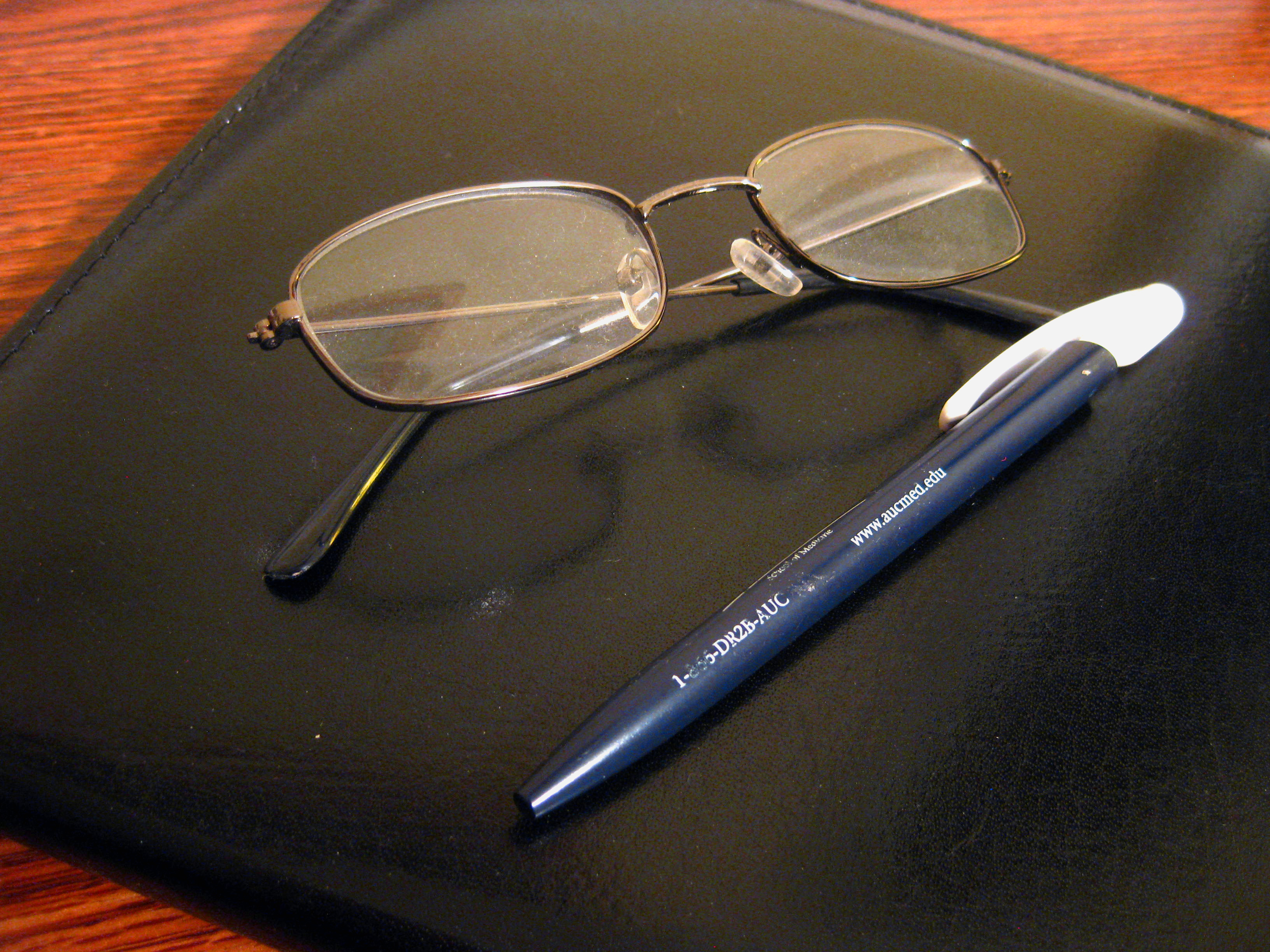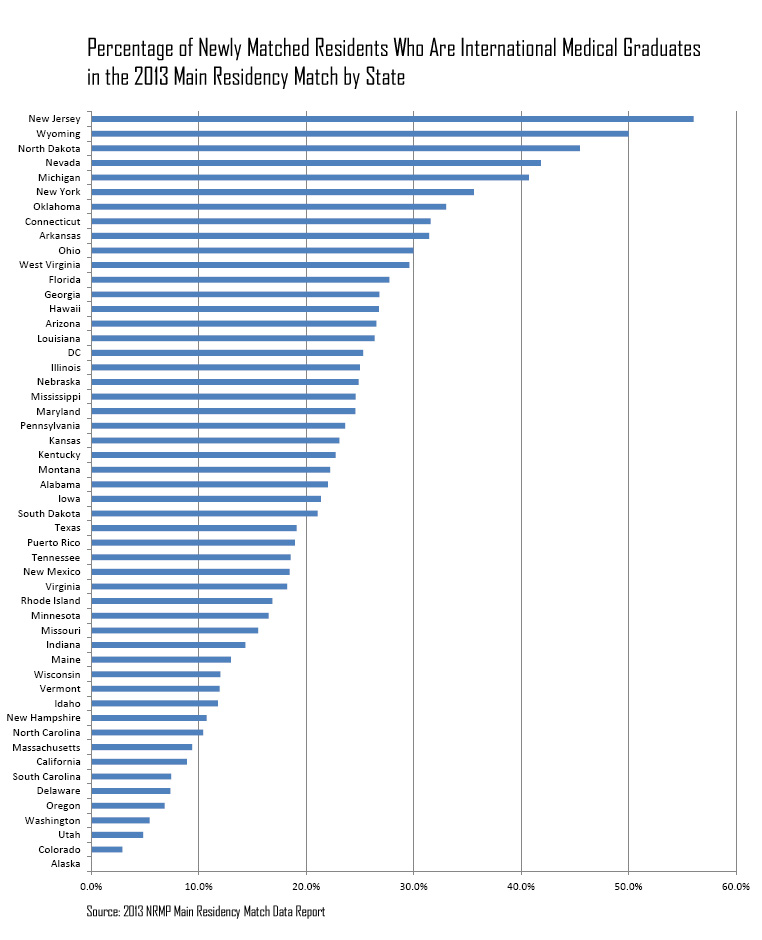How Many Residency Programs Should I Apply to?
 As an IMG, the short answer is at least 100. The long answer is that it all depends on the attractiveness of your application, the competitiveness of your desired field, how much choice you would like to have, and how much you are willing to spend on applications.
As an IMG, the short answer is at least 100. The long answer is that it all depends on the attractiveness of your application, the competitiveness of your desired field, how much choice you would like to have, and how much you are willing to spend on applications.
One mistake that some applicants make when applying to residencies is overestimating their chances and applying to too competitive of programs for their scores or too little residency programs. While some of us have applications that are exceptional, many of us are pretty average and have very similar “attractiveness” as the other myriad of candidates who apply to the same program. Because of this, more and more applicants are casting a wider net, applying to more and more programs over the years. This certainly doesn’t help relieve the headache of the selection committee who have to screen through all these applications, but it’s reality, and to increase your chances nowadays, you’ll have to apply to more programs. How little is too little, and how much is too much though? To answer this question, you must be realistic about what you have to offer to programs, and how attractive your application is. There are four factors to consider:
1. Which specialty are you applying to?
Some specialties are more competitive than others and require higher scores. If your scores aren’t as high as the average applicant applying for that specialty, then you’ll have to apply to more programs, in the hopes that one of them would be interested in inviting you to an interview. Check out my post here to see what scores you should aim for.
2. Are you an IMG?
As an IMG, you will need to apply to significantly more programs than the average US med student with equivalent scores to get the same (or less) number of interview invitations. As an IMG you should also apply to programs that have a history of accepting IMGs, particularly those from your school. Some school websites have a list of programs that their alumni have matched in. This is a great resource to start with when thinking about where to apply. Another useful resource in finding IMG-friendly programs that consider candidates with similar scores as you is Match A Resident. The service costs, but it is well worth it, and saves you a headache.
3. How are your scores, application, grades, evaluations, etc.?
If your scores are below average or if you have any red flags on your application (failures, leave of absence, multiple exam attempts, misconduct, etc.), I would not recommend spending your money on applying to prestigious programs like Mass General or Wash U. Invest your application budget on programs that would more realistically consider you, in states that are more IMG-friendly, and definitely apply to more programs. I’d recommend at least 100 programs. Although you may spend over $2000 applying to this many programs, the cost is miniscule compared to what it would cost you if you didn’t match and had to wait another year. It’s better to be safe than sorry. Like I mentioned above, Match A Resident is a great resource that suggests IMG-friendly programs based on your scores and stats. I highly recommend it.
4. Do you need a Visa?
Many programs may not sponsor Visas for foreign IMGs. If you need one, you should only apply to programs that do sponsor them, otherwise you will be spending money on applying to programs that won’t likely rank you. Sponsoring a Visa can be a lot of work and money for a program, so even if a program sponsors them, they may not prefer it. Therefore, if you are a foreign IMG (including Canadians), then you should apply to even more programs than your average US IMG. I recommend at least 100. Again you can search for programs that sponsor visas via Match A Resident, or simply go to the program’s website and look for that information.
Here, I’ve created a chart of the median number of programs applied to and median number of interview invitations received by matched US medical graduates and matched independent applicants, which include US IMGs, foreign IMGs, and DO graduates. Notice that competitive specialties require more applications than less competitive specialties to get the same number of interview invites. Also note that independent applicants need to apply to significantly more programs than US grads and often get less interview invitations on average. This data is taken from the 2013 NRMP Applicant Survey.
| MATCHED US MD | MATCHED IMG/DO | |||
| Specialty | Applications | Interviews | Applications | Interviews |
| Anesthesiology | 30 | 15 | 50 | 8 |
| Child Neurology | 18 | 15 | 45 | 10 |
| Dermatology | 72 | 10 | 85 | 6 |
| Emergency Medicine | 33 | 17 | 40 | 8 |
| Family Medicine | 17 | 14 | 50 | 8 |
| Internal Medicine | 25 | 15 | 94 | 9 |
| IM/Peds | 22 | 15 | 40 | 11 |
| Neurology | 20 | 15 | 50 | 9 |
| Neurosurgery | 46 | 22 | 91 | 12 |
| Ob/Gyn | 30 | 16 | 47 | 12 |
| Orthopedic Surgery | 62 | 16 | 60 | 7 |
| Otolaryngology | 56 | 15 | 89 | 4 |
| Pathology | 20 | 14 | 50 | 8 |
| Pediatrics | 22 | 15 | 50 | 10 |
| PM&R | 25 | 16 | 30 | 12 |
| Plastic Surgery | 53 | 18 | 55 | 3 |
| Psychiatry | 20 | 14 | 45 | 8 |
| Radiation Oncology | 56 | 16 | 63 | 6 |
| Radiology | 45 | 20 | 50 | 8 |
| Surgery | 38 | 16 | 77 | 4 |
| Transitional Year | 25 | 15 | 30 | 2 |
So the average US medical school applicant who matched in Family Medicine applied to 17 family medicine residency programs and received 14 invitations for interviews. In contrast, the average IMG/DO applicant who matched in Family Medicine applied to 50 programs and received 8 invitations. Therefore to increase your chances to get the same number of invitations as your US MD counterparts, you’ll have to apply to around 100 programs. Remember, this chart just shows the median number applications submitted and median number of interview invitations received for those who matched. Those who did not match received even less interview invitations. There is a much wider range of numbers than those found on the chart, depending on the four factors I’ve elucidated above.
After interviews are all over, I would recommend ranking all the programs that you interviewed at, unless there is a program that you disliked so much that you’d rather wait a year to reapply than match there. Ranking less spots does not make you more likely to match in those spots. Only one rank is needed to match, and there are certainly candidates who have matched with only ranking one program. However, that doesn’t mean you’re guaranteed a match with 1 rank. You’re also not guaranteed a match with 20 (the max number you can rank). Ultimately, what is important is the quality of the interview, rather than the quantity. If a candidate is lucky and gets 20 interviews, but acts awkward, unprepared, and uninterested in all them, his/her chance of matching probably won’t be as high as the person who had 1 interview but blew the interviewers out of the water. However, NRMP statistics do positively correlate number of interviews or ranks to likelihood of a match. Therefore, generally speaking, the more the better.
Best of luck everyone!
Benji
Links for Residency Interview and Match
- How to Apply for Residency
- How to Improve your MSPE Letter
- Most IMG-Friendly States
- How to Prepare for Residency Application Season
- How Many Residency Programs to Apply to?
- Questions Asked During a Residency Interview
- Dos and Don’ts of Residency Application and Interview
- How to Dress for a Residency Interview
- Following Up After a Residency Interview
- Tips on Ranking Residency Programs














Hi Benji,
I am an IMG. I got a 212 on Step 1, and passed CS on 1st attempt. I plan on taking CK on Sept 29th, which means I won’t get my score back until mid-late October. Should I apply on September 15th, or wait until I get my CK score back?
I have heard both sides of the story saying that it’s best to apply asap because some programs will not even look at you after they have looked at so many apps, but then others say that programs won’t accept your app if both your step 1 and CK scores are not in.
What is your opinion and/or personal experience?
Thanks!
Always apply as soon as you can even before you get your scores back. I received a few interview invitations even before my scores came back.
thanks for blog when i went to AUC it was a godsend. my only problem with this list is specifically the EM portion for interviews. DOs are heavily favored over IMGs when it comes to EM. I applied to 159 EM programs with board scores of 250/259. From what fellow IMGs who matched EM say is a GOOD return is getting interviews at ten percent of the places you apply. So to use combo DO/IMG skews the average alot.
Yes, unfortunately the bias is very program-dependent.
Hi,
How much does it cost to apply to so many residency programs?
Hi Sarah, It’s expensive for sure, but a fraction of what med school costs, and a fraction of what it would cost if you applied to less programs and didn’t get in anywhere and had to wait a year.
Hi Benji,
Can a caribbean med student get into neurosurgery by scoring good in USMLE only?
No… no one can, not even US grads. You need more than just a good USMLE score.
Hi Benji,
First off, Thank you so much for this blog. It’s like reading a story book of all the exciting things to expect as a med student at AUC. I’m sure the reality was much much more. Congrats on all of your success.
I’m starting at AUC this summer. I was wondering if it’s more likely that you’ll attain a residency position on where you end up doing your rotations. I know you can build a rapport with immediate collegues and professors, but do they have a say in whether you can be picked as a resident at their hospital?
Thank you.
As a resident, I can say that residents definitely have a role in choosing candidates for residency programs. Have a good rapport with everyone. If you make a bad impression with the residents, they will remember you for that.
Hi Benji,
I appreciate your blog. Godsend! I am waiting to hear back from some US MD and DO schools and this is my second year applying. I honestly haven’t had any good luck so I am preparing for the worst. I have read both yours and Andrea’s blog about AUC and I’m sold on it! Of course I know about the huge stigma of Caribbean medical schools but now that the DO/MD residencies are merging (AOA & ACGME) do you think the likelihood of IMGs matching for residency in the US will decrease even more? Is it worth going to a carib school at this point? Thank you for your time and input!